
Leopoldo Antonio Carrillo was an American actor, vaudevillian, political cartoonist, and conservationist. He was notable for playing Pancho in the television series The Cisco Kid (1950–1956) and in several films.
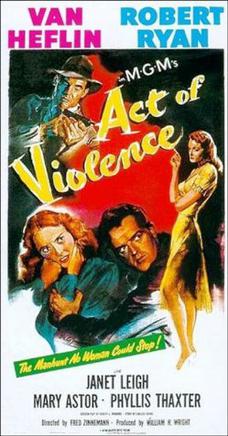
Act of Violence is a 1949 American film noir directed by Fred Zinnemann and starring Van Heflin, Robert Ryan, Janet Leigh, Mary Astor and Phyllis Thaxter. It was produced by Hollywood studio Metro-Goldwyn-Mayer. Adapted for the screen by Robert L. Richards from a story by Collier Young, the film confronts the ethics of war and was one of the first to address the problems of World War II veterans.

Cookie is a 1989 American crime comedy film directed by Susan Seidelman and starring Peter Falk, Emily Lloyd, and Dianne Wiest, with Michael V. Gazzo, Brenda Vaccaro, Adrian Pasdar, and Jerry Lewis.

Night World is a 1932 American pre-Code drama film featuring Lew Ayres, Mae Clarke, and Boris Karloff. The supporting cast includes George Raft and Hedda Hopper.

She Couldn't Say No is a 1930 American Pre-Code drama which stars Winnie Lightner, fresh from her success in Gold Diggers of Broadway (1929). It was adapted from a play by Benjamin M. Kaye. An aspiring singer ends up in a love triangle with a gangster and a socialite.

Back from Eternity is a 1956 American drama film about a planeload of people stranded in the South American jungle and subsequently menaced by headhunters. The film stars Robert Ryan, Rod Steiger, Anita Ekberg and Gene Barry. The film is a remake of the 1939 film Five Came Back, also directed and produced by John Farrow. Richard Carroll, who is credited with writing the story for Back from Eternity, wrote the original story for Five Came Back.
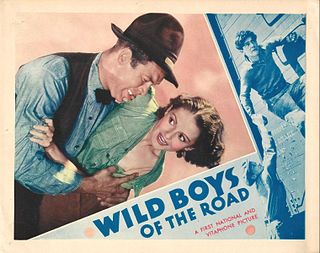
Wild Boys of the Road is a 1933 pre-Code Depression-era American drama film directed by William Wellman and starring Frankie Darro, Rochelle Hudson, and Grant Mitchell. It tells the story of several teens forced into becoming hobos. The screenplay by Earl Baldwin is based on the story Desperate Youth by Daniel Ahern. In 2013, the film was selected for preservation in the United States National Film Registry by the Library of Congress as being "culturally, historically, or aesthetically significant".

The Guilty Generation is a 1931 American pre-code crime film directed by Rowland V. Lee and starring Leo Carrillo, Constance Cummings and Robert Young.
Everywoman's Husband is a 1918 American silent drama film directed by Gilbert P. Hamilton and starring Gloria Swanson. A print of the film is preserved at the UCLA Film and Television Archive.

Killer McCoy is a 1947 American sports drama film about a boxer starring Mickey Rooney. It is a remake of The Crowd Roars (1938). The picture was directed by Roy Rowland with a supporting cast featuring Brian Donlevy, Ann Blyth, James Dunn, Tom Tully, and Sam Levene.
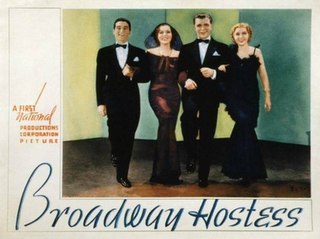
Broadway Hostess is a 1935 American romantic comedy musical film directed by Frank McDonald and starring Wini Shaw, Genevieve Tobin and Lyle Talbot. The film was nominated at the 1935 Academy Awards for the short lived Best Dance Direction category. For which Bobby Connolly was nominated for, along with the film Go into Your Dance.
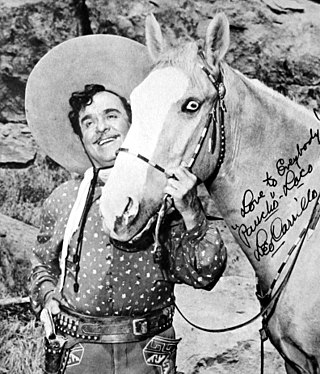
Leo Carrillo (1881–1961) was an American cartoonist, a comedian in vaudeville, and an actor on stage, film and television. He was best known in the United States as the Cisco Kid's sidekick Pancho on 1950s children's television, a role which capped a long show business career that began decades earlier.

Mister Antonio is a 1929 love story based on a 1916 Booth Tarkington Broadway play of the same name. Leo Carrillo stars in the title role of Antonio Camaradino, originated on Broadway by Otis Skinner, as a hurdy-gurdy street artist who falls in love with the relative of a robbery victim he has rescued.

Danger in the Pacific is a 1942 espionage thriller set on a fictional island during World War II.

Obey the Law is a 1933 American Pre-Code crime drama film released by Columbia Pictures.

Racetrack is a 1933 American pre-Code drama directed by James Cruze and starring Leo Carrillo, Junior Coughlan and Kay Hammond. This film is now considered lost.

Little Miss Roughneck is a 1938 American drama.
Chicken Wagon Family is a 1939 American comedy, directed by Herbert I. Leeds and based on the 1925 novel, The Chicken-Wagon Family, by Barry Benefield. It stars Leo Carrillo in the role originally intended for Will Rogers before his death.
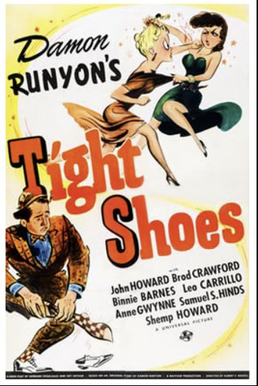
Tight Shoes is a 1941 American comedy film directed by Albert S. Rogell and starring Leo Carrillo, John Howard, and Broderick Crawford. It is based on the Damon Runyon story. The film was produced and distributed as second feature by Universal Pictures.
Escape from Hong Kong is a 1942 American comedy horror film.

















